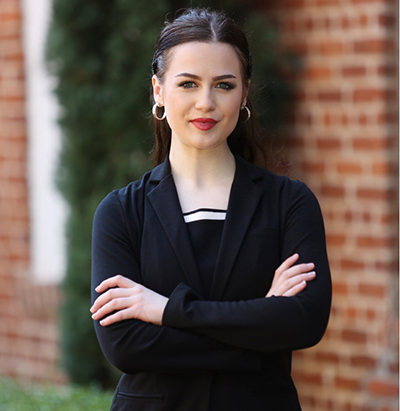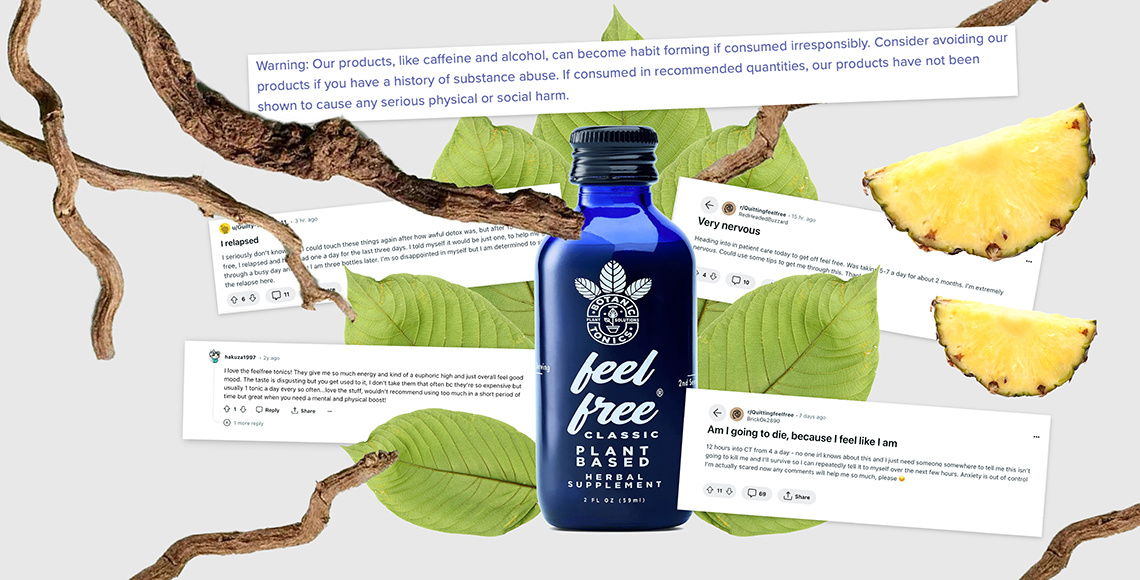Top image: Botanic Tonics warns people to consider not taking Feel Free Classic if they have a history of substance abuse. Some users of the product have reported positive experiences, but others say they’ve gotten addicted to it. (Photo illustration by visual communications major Savannah Nagy/Carolina News and Reporter)
A national energy drink maker has pledged to stop marketing to young adults after the Carolina News and Reporter revealed that some users said the tonic made them addicted and destroyed their health, bank accounts and relationships with loved ones. Read story»

Senior journalism major Riley Edenbeck interviewed consumers who had experienced dangerous health effects from the controversial drink. She also talked to people who had become addicted, enduring extreme emotional and financial blows while doing everything they could to keep taking the tonic.
Brandon Shulleeta, an instructor at the School of Journalism and Mass Communications, worked with Edenbeck for 12 weeks to deliver the story as part of the school’s capstone semester-long immersive newsroom experience.
“Riley knew she was onto something. And I think she became obsessed in a good way,” Shulleeta said. “Anytime you can write a story like this and see the company make a big change right afterward, you know you’ve done something.”
Two days after the Carolina News and Reporter newsroom published the story, the CEO of its Oklahoma-based manufacturer told Edenbeck he plans to limit the 18+ product to only consumers 21 and older nationwide. Read follow-up story»
“We are changing all packaging to reflect 21+,” Botanic Tonics CEO and founder JW Ross said in an email.
He also said his company plans to end its sponsorship of several large universities’ athletics programs.
USC students can buy the tonic at convenience stores near campus. It’s marketed as an “energy boost” at retail outlets around the country.
Many users said on social media outlets that they used the drink without experiencing side effects. They said it helped them focus and relieved some pain. Others didn’t have a good experience.
Edenbeck’s reporting revealed that the drink’s main ingredients, ground leaf kratom and kava root extract, made the tonic in certain quantities addictive and dangerously toxic to the liver.
“It was a privilege to be able to give a bit of a voice to such an important topic,” Edenbeck said. “No matter what this story threw at us, Brandon was great at pushing me to keep chasing it. The subjects in this story were completely unfamiliar to me, and I loved teaching myself about them to make sure I did the people in my story justice. It’s their story more than it is mine.”
Journalism sequence head Nina Brook, praised Edenbeck and the capstone program, which gives students 12 hours of credit while teaching students real-world, competitive journalism.
“Many professional journalists wait a long time, if ever, to see their story prompt a national policy change,” Brook said. “Riley did so before getting her diploma, and she did it in our student newsroom.”
The SJMC named Edenbeck the recipient of the J. Rion McKissick Award as an outstanding journalism senior at a ceremony on April 18. Edenbeck is also an editor at The Daily Gamecock and will spend this summer in New York City as a Dow Jones intern, writing for a business journalism publication.
